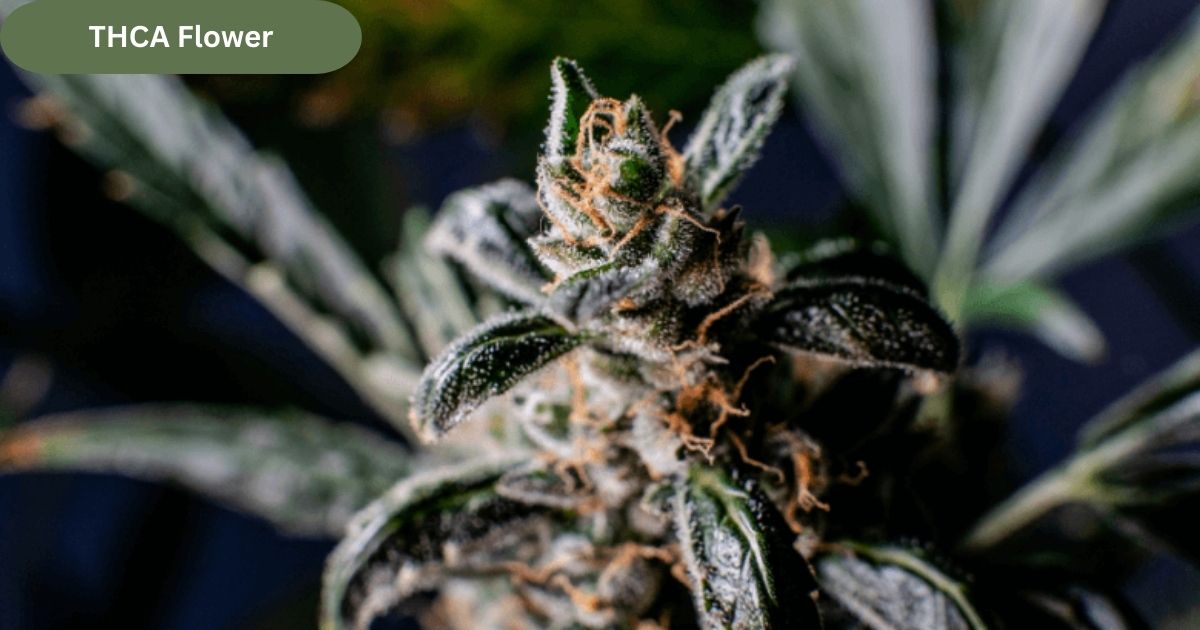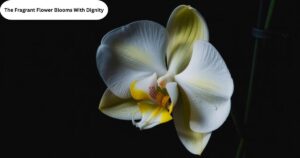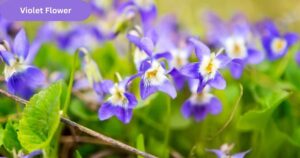THCA flower has gained significant attention in the world of cannabis in recent years. As consumers seek more natural and holistic ways to experience the benefits of cannabis without the psychoactive effects of THC, THCA offers an exciting alternative. This comprehensive guide explores everything you need to know about THCA flower, from its origins and benefits to how it differs from THC, and how to incorporate it into your lifestyle.
What Is THCA Flower
THCA stands for tetrahydrocannabinolic acid, which is the non-psychoactive precursor to THC. Found in raw cannabis plants, THCA is converted to THC through a process called decarboxylation, which occurs when the flower is heated. Unlike THC, THCA does not cause a high, making it an appealing option for those who want to enjoy the medicinal properties of cannabis without the mind-altering effects.
THCA flower is harvested and sold in its natural state, often providing a potent source of cannabinoids, terpenes, and flavonoids. This flower is typically consumed in raw or unheated form, meaning it can be juiced or used in edibles that do not involve baking or cooking. The preservation of THCA offers numerous health benefits that are not available in other forms of cannabis, making it a unique choice for cannabis users.
The Health Benefits of THCA Flower
THCA flower offers a range of potential health benefits due to its unique composition of cannabinoids and terpenes. While research on THCA is still in its early stages, some studies have indicated that THCA may have anti-inflammatory, neuroprotective, and antiemetic (anti-nausea) properties. These benefits can be particularly valuable for individuals suffering from conditions such as arthritis, neurodegenerative diseases, or chemotherapy-related nausea.
Additionally, THCA has shown potential as an antioxidant, helping to protect the body from oxidative stress and promoting overall health. Since THCA does not have the intoxicating effects associated with THC, it provides a therapeutic option for individuals seeking relief without feeling “high.” This makes it especially attractive to people who are looking for medicinal cannabis but want to avoid the psychoactive effects of THC.
How THCA Differs From THC
While THCA and THC are closely related, they differ significantly in their effects on the body. THC is the main psychoactive compound in cannabis, responsible for the “high” that many users experience. However, THCA is non-psychoactive, meaning it does not produce any mind-altering effects, even though it is a precursor to THC. To activate THCA into THC, heat is required, such as when cannabis is smoked or vaporized.
The difference between THCA and THC is largely due to the chemical structure of each compound. THCA has a carboxyl group (COOH) attached to its molecular structure, which makes it inactive in terms of its psychoactive effects. When heated, the carboxyl group is removed, converting THCA into THC, which can then bind to the body’s cannabinoid receptors, producing the familiar high. This distinction makes THCA flower a unique option for those looking to benefit from cannabis without the intoxicating effects.
How to Use THCA Flower
There are several ways to incorporate THCA flower into your routine, depending on your preferences and desired effects. Since THCA is non-psychoactive in its raw form, it can be consumed in a variety of ways, such as in smoothies, teas, or even raw cannabis juices. These methods allow users to enjoy the medicinal benefits of THCA without activating its psychoactive properties.
For those who prefer to use THCA flower in its raw state, juicing is a popular option. Juicing cannabis allows users to extract the maximum amount of THCA while avoiding the decarboxylation process that converts it into THC. This method is especially appealing to health-conscious individuals who want to benefit from the therapeutic properties of cannabis without experiencing a high. Additionally, THCA can be infused into oils, tinctures, and edibles for a more customized experience.
The Legal Status of THCA Flower
The legal status of THCA flower varies depending on the jurisdiction in which you live. In many areas, THCA is not considered a controlled substance because it is non-psychoactive and does not produce the high associated with THC. However, the legality of THCA may be subject to specific local regulations, especially when it comes to its sale and distribution.
In the United States, for example, THCA is legal in many states where medical or recreational cannabis is allowed, provided the THCA content remains within the legal limits. However, since THCA can be converted into THC through decarboxylation, it is essential to check local laws to ensure compliance. As cannabis laws continue to evolve, it is important to stay informed about the legality of THCA flower in your area.
THCA Flower for Anti-Inflammatory Effects
One of the most notable benefits of THCA flower is its potential to reduce inflammation. Inflammation is a natural response by the body to injury or infection, but chronic inflammation is linked to various health conditions such as arthritis, heart disease, and diabetes. THCA has shown promise as an anti-inflammatory agent, making it a valuable option for those suffering from inflammatory conditions.
By interacting with the body’s endocannabinoid system, THCA may help modulate the inflammatory response, providing relief without the psychoactive effects of THC. Many users report feeling less pain and discomfort when using THCA, particularly for conditions like rheumatoid arthritis or osteoarthritis. The anti-inflammatory effects of THCA are one of the primary reasons for its growing popularity among those seeking natural alternatives for pain management.
THCA Flower and Mental Clarity
Unlike THC, which can impair cognitive function and memory, THCA flower may actually support mental clarity and focus. Since THCA is non-psychoactive, it does not induce the euphoric, mind-altering effects of THC that can sometimes hinder concentration and productivity. This makes THCA a suitable choice for individuals who want to experience the benefits of cannabis without any cognitive impairment.
For those who use cannabis for medicinal purposes but need to remain mentally sharp throughout the day, THCA flower offers a balanced solution. Whether used for stress relief, pain management, or general well-being, THCA allows users to enjoy the therapeutic benefits of cannabis while maintaining mental clarity and focus. As a result, it has become a popular option among professionals and individuals who prioritize cognitive function.
Read More: December Birth Flower
Conclusion
In conclusion, THCA flower is a unique and versatile option for cannabis users who want to experience the therapeutic benefits of cannabis without the psychoactive effects of THC. Whether you’re looking for pain relief, anti-inflammatory benefits, or mental clarity, THCA offers a natural alternative that can be incorporated into various aspects of your lifestyle. With its growing popularity and potential health benefits, THCA flower is an exciting addition to the cannabis market.
As more research emerges and consumers become more educated on its uses, THCA flower is likely to continue gaining traction as a non-intoxicating yet effective cannabis product. If you’re interested in exploring cannabis for medicinal purposes without the high, THCA flower may be the perfect solution for you.
FAQs
What is THCA flower?
THCA flower is cannabis in its raw form, containing tetrahydrocannabinolic acid, which is non-psychoactive.
How does THCA differ from THC?
THCA is the precursor to THC and does not cause a high until it is heated and decarboxylated.
What are the benefits of using THCA flower?
THCA flower may offer anti-inflammatory, neuroprotective, and anti-nausea benefits without the psychoactive effects of THC.
How can I consume THCA flower?
You can consume THCA flower by juicing, adding it to smoothies, or using it in raw cannabis-based edibles.
Is THCA flower legal?
The legality of THCA flower depends on local cannabis laws and whether it contains more than the legal THC limit.









